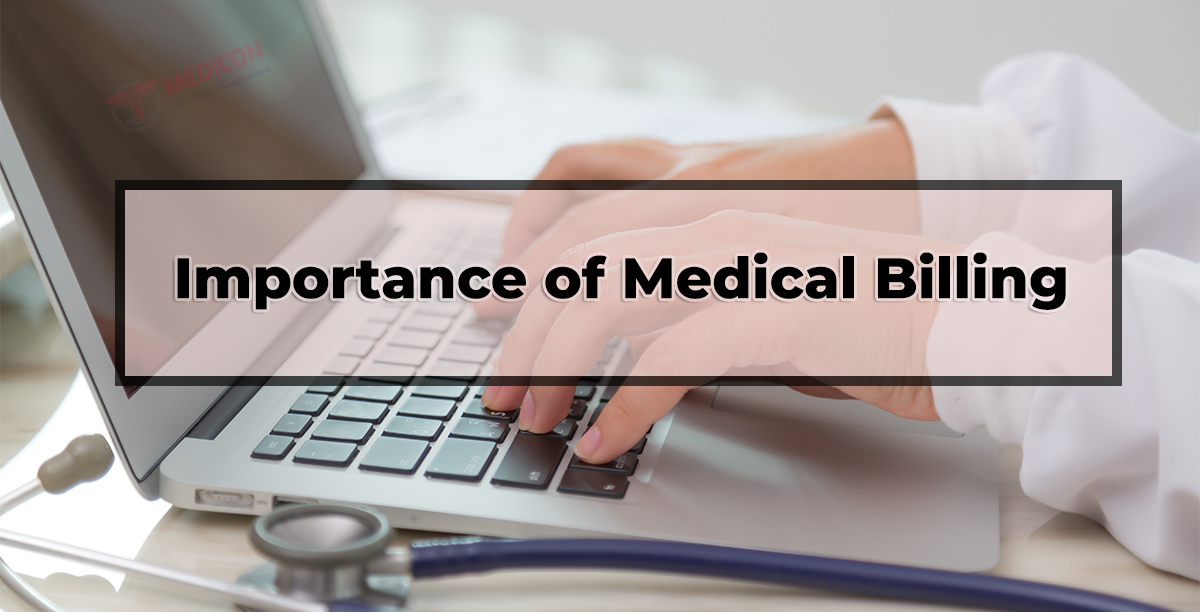Importance of Medical Billing
Accurate Revenue Collection:
Medical billing is crucial for ensuring accurate revenue collection within healthcare organizations. Proper billing processes help healthcare providers receive timely and correct payments for their services. Accurate medical billing reduces the risk of claim denials and ensures that providers are compensated fairly for the care they deliver.

Compliance with Regulations:
Medical billing ensures compliance with various healthcare regulations and insurance requirements. By adhering to coding guidelines and billing standards, healthcare providers avoid legal issues and maintain operational integrity. Compliance with regulations also helps in avoiding penalties and audits from insurance companies and regulatory bodies.
Efficient Claim Management:
Effective medical billing processes streamline claim management. This involves the accurate submission of claims to insurance companies, tracking the status of claims, and managing rejections or denials. Efficient claim management reduces administrative burdens and helps in maintaining a steady cash flow for healthcare providers.
Patient Satisfaction:
Accurate medical billing contributes to patient satisfaction by providing clear and correct billing statements. Transparent billing helps patients understand their financial responsibilities and reduces confusion or disputes over charges. This enhances the overall patient experience and builds trust between healthcare providers and their patients.
Financial Health of Healthcare Facilities:
Proper medical billing practices are essential for the financial health of healthcare facilities. Accurate and timely billing ensures that healthcare organizations can cover their operational costs, invest in new technologies, and provide quality care to their patients. It also supports financial planning and resource allocation within the facility.
Data for Decision Making:
Medical billing generates valuable data that can be used for decision-making and strategic planning. Analyzing billing data helps healthcare providers understand trends in service utilization, identify areas for improvement, and make informed decisions about resource management and patient care.
Reduction of Errors and Fraud:
Proper medical billing procedures help in reducing errors and preventing fraud. By following standardized coding practices and conducting regular audits, healthcare organizations can minimize mistakes and fraudulent activities. This ensures that billing practices are ethical and transparent.
Streamlined Revenue Cycle:
Medical billing is an integral part of the revenue cycle management process. It helps in streamlining the revenue cycle by managing the entire billing process, from patient registration to final payment. Effective billing processes improve cash flow and ensure that healthcare providers receive their due payments promptly.
How Hospitals Use Medical Billing
Accurate Documentation of Services:
Hospitals use medical billing to document the services and procedures provided to patients. Each service is assigned a specific code, such as those from the ICD-10, CPT, or HCPCS coding systems. This documentation is essential for creating detailed records of the care provided, which are necessary for both billing and medical record-keeping.
Claims Submission to Insurance Companies:
Medical billing processes are employed to submit claims to insurance companies for reimbursement. Hospitals prepare and submit claims forms that detail the services provided, along with the associated codes. This step ensures that insurance companies are billed correctly and that the hospital can receive payment for the services rendered.
Handling Patient Accounts:
Hospitals manage patient accounts through medical billing by processing invoices and statements. Billing departments generate bills for patients based on the services they received and any insurance coverage. This involves calculating patient responsibilities, such as co-pays, deductibles, and coinsurance, and communicating these charges to patients.
Compliance with Regulatory Standards:
Hospitals use medical billing to ensure compliance with healthcare regulations and standards. Accurate coding and billing practices help hospitals adhere to federal and state regulations, avoid legal issues, and prevent fraud. Compliance is critical for maintaining the hospital's operational integrity and avoiding penalties or audits.
Managing Reimbursements and Denials:
Medical billing helps hospitals manage reimbursements and handle claim denials or rejections. The billing department tracks the status of claims, follows up on unpaid claims, and addresses issues related to denials or underpayments.

